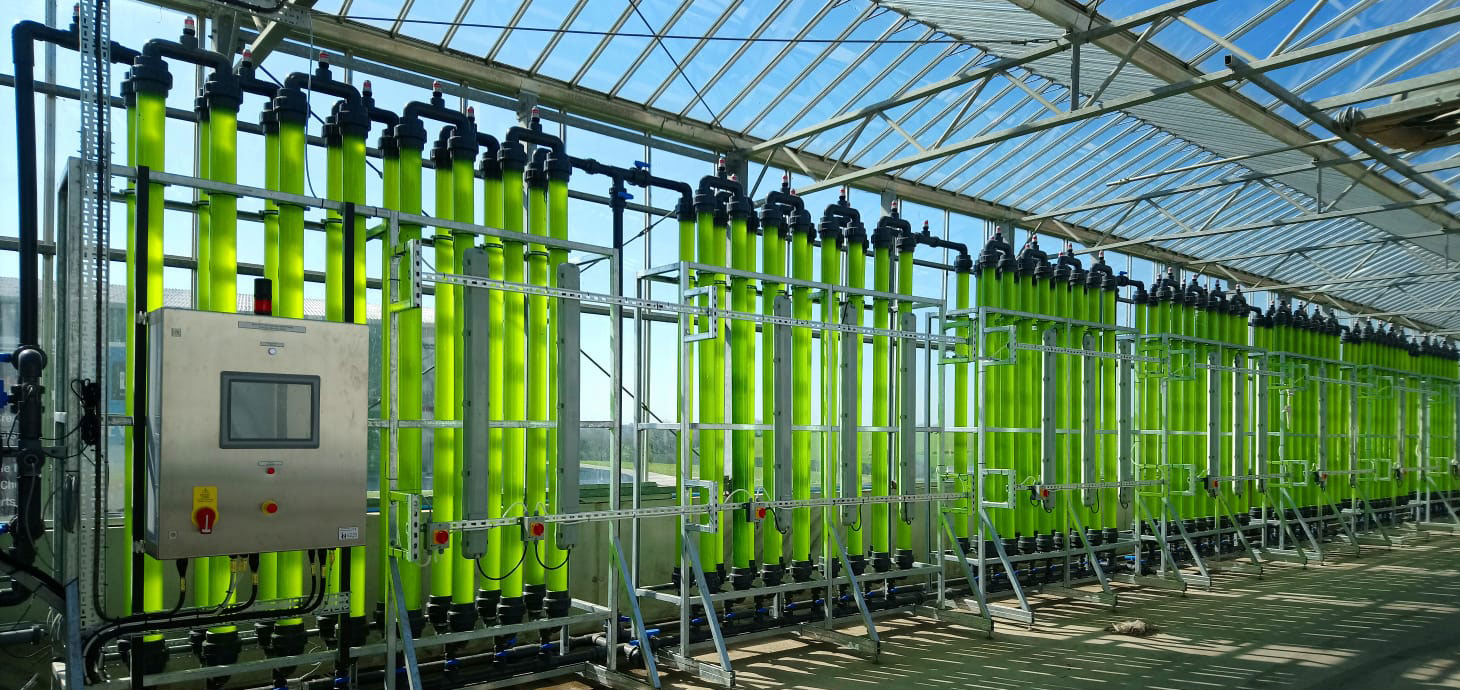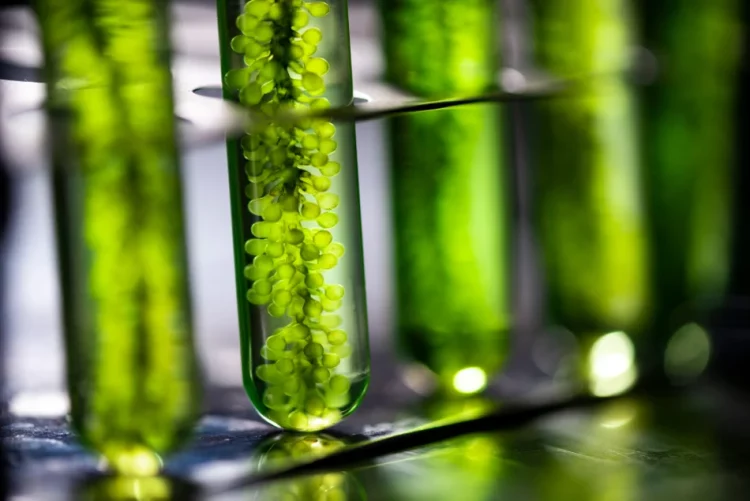In a world where sustainability, biotechnology, and green solutions are taking center stage, one seemingly humble organism is beginning to attract the eyes of savvy investors: algae. Historically overlooked, algae are emerging as a potent asset in industries ranging from energy to food production. Whether you’re a seasoned investor or a newcomer looking for fresh opportunities, algae could be the next big thing on your radar.
The Surprising Potential of Algae
Algae, simple aquatic plants, might seem more suited for pond life than global markets. However, these organisms have a plethora of uses that go far beyond their traditional roles in the ecosystem. From biofuels to bioplastics, algae are showing promise in diverse industries. The financial world is taking notice, and early-stage investments in algae startups are starting to look quite attractive.
A Green Revolution in the Making
Algae, particularly microalgae, are at the forefront of a green revolution. They are carbon-neutral, requiring far less land and water to grow than traditional crops. With the global shift toward sustainability, algae are increasingly seen as a solution to many pressing challenges. They can be cultivated in a variety of environments—ranging from fresh to saltwater—and don’t compete with food crops for space.
Key Sectors Investing in Algae

- Energy and Biofuels
Algae have long been recognized for their potential in biofuel production. Microalgae, when cultivated under specific conditions, can produce large quantities of lipids, which can be converted into biodiesel. This biofuel is seen as a cleaner, more sustainable alternative to fossil fuels. Companies like Solazyme (now TerraVia) and Algenol are pioneering algae-based biofuel technologies, and governments are increasingly supporting this innovation with grants and incentives. - Food and Nutrition
Algae have been consumed for centuries, particularly in Asian countries, where varieties like nori (used in sushi) and spirulina (a protein-packed supplement) are popular. But beyond these, algae’s potential in global food systems is vast. Algae can be used to produce plant-based proteins, omega-3 fatty acids, and other essential nutrients. As the demand for plant-based food alternatives grows, algae are poised to become a key player in this space. - Bioplastics
With growing concerns over plastic waste and environmental pollution, bioplastics derived from algae are gaining attention. Algae-based bioplastics are biodegradable and have a much smaller carbon footprint than conventional petroleum-based plastics. Innovators in this sector are working to develop algae-based packaging solutions, which could significantly reduce the environmental impact of plastic products. - Cosmetics and Pharmaceuticals
Algae have long been used in the cosmetics industry for their hydrating, anti-aging, and antioxidant properties. Algal extracts are now being incorporated into skincare products, from moisturizers to serums. The pharmaceutical industry is also exploring algae’s therapeutic potential, as certain compounds found in algae have been shown to have anti-inflammatory, anti-cancer, and antimicrobial effects.
Why Invest in Algae Now?
Investing in algae today could offer significant financial returns tomorrow. But beyond profit, algae-based technologies are poised to become a cornerstone of global sustainability. Here’s why:
- The Environmental Imperative
The world is at a critical juncture when it comes to climate change and environmental degradation. Algae’s ability to sequester carbon and reduce dependence on fossil fuels positions it as an environmentally sustainable solution. As more governments and corporations make climate-related pledges, algae-based solutions are set to benefit from growing demand and policy support. - Growing Demand for Sustainable Products
The shift toward sustainable and eco-friendly products is no longer a passing trend; it’s the future. Investors are increasingly turning toward businesses that integrate sustainability into their core operations. Algae, being a versatile and eco-friendly raw material, will likely become a key resource in the development of sustainable products across multiple sectors. - A Booming Market
The global algae market is projected to reach over $50 billion by 2025. As industries such as food, energy, and pharmaceuticals increase their reliance on algae-based products, this market is expected to expand rapidly. Investors looking to tap into the next big growth sector should seriously consider algae, especially given the diversity of its applications.

Challenges and Considerations
Like any emerging market, the algae industry isn’t without its challenges. While the potential is vast, several hurdles remain that could impact growth:
- Technological Development
While algae-based technologies have come a long way, further advancements in algae cultivation and processing are required to make these technologies scalable. Investors should look for companies with strong research and development pipelines and proven expertise in algae biotechnology. - Market Adoption
The algae industry is still in its infancy. Many sectors, such as food and bioplastics, are exploring algae’s potential, but widespread market adoption could take time. Patience is key for those looking to invest in this space. - Regulatory Hurdles
As algae-based products—particularly in food and biofuels—move closer to commercialization, they will face increasing scrutiny from regulatory bodies. Navigating these regulatory hurdles can be a complex and time-consuming process, but for companies that succeed, the rewards will be substantial.
How to Invest in Algae
There are several ways to gain exposure to the algae sector:
- Direct Investment in Algae Startups
Many startups are pioneering algae-based technologies. By investing directly in these companies, you can tap into the growth of the industry from the ground up. However, early-stage investing carries inherent risks, so thorough due diligence is essential. - Public Companies Involved in Algae
Several publicly traded companies are already capitalizing on the potential of algae. These include firms like Corbion, which produces algae-based ingredients for food and nutrition, and Bunge, which is exploring algae-based biofuels. These companies offer a more stable investment route but may not provide the same high-risk, high-reward potential as smaller startups. - Algae ETFs
For investors looking for diversification, exchange-traded funds (ETFs) focused on sustainability or clean energy may offer exposure to companies involved in algae-related industries. These funds provide an easy way to invest in algae without having to pick individual stocks. - Venture Capital Funds
Venture capital funds that focus on sustainability or biotechnology are increasingly investing in algae-based companies. This route allows you to diversify your investment while supporting innovative startups in the algae space.
Conclusion: The Algae Investment Opportunity
Algae are more than just an environmental asset—they are emerging as a potentially lucrative investment opportunity. From biofuels and food to bioplastics and cosmetics, algae’s versatility and sustainability position it as a future-forward industry ripe for investment. As the world pivots toward cleaner, more sustainable solutions, algae could be the next frontier for forward-thinking investors.
With the right strategy, understanding of the market, and patience, algae might just be the next big thing in your investment portfolio.











































Discussion about this post